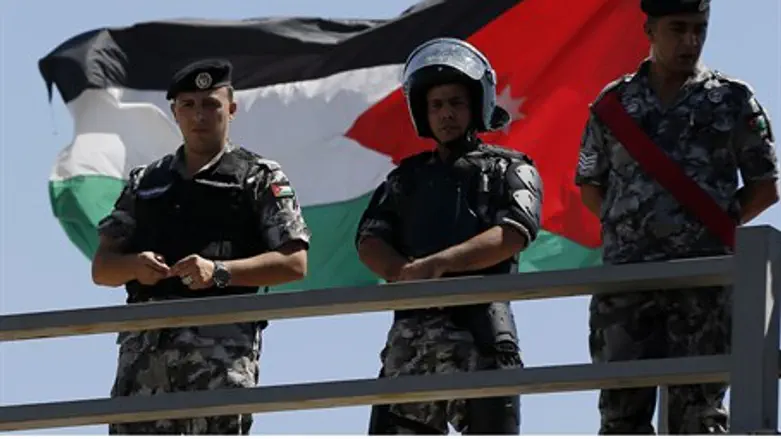
Conflicts in Iraq and Syria are changing the Middle East. As a result of ethnic warfare, literally hundreds of thousands of Arabs of different cultural backgrounds have fled for safer borders around the region. The result, claims Pinhas Inbari of the Jerusalem Center for Public Affairs, will have major implications on Israel’s immediate neighbors: Jordan and the Palestinians.
Jordan has had a tumultuous relationship with Palestinians since the Israeli War of Independence. Many Arabs fled to Jordan and residents of Judea and Samaria became full citizens of Jordan while the country occupied it. But Jordan has been reluctant to extend that courtesy to the descendants of refugees living in Jordan. The monarchy fears that were that to happen, they would open the door back up to the "Jordan is Palestine" argument.
During the Iraq War, some 1 million Iraqis fled to Jordan, and there they have stayed as far as Inbari is aware. The remarkable part of the community is that it is diverse: a substantial portion, if not half of those refugees, are Shiite. Today, upwards of perhaps 500,000 people in Jordan are Shiite.
“Jordan has never had a (large) Shiite population in its history; this is the first time they’ve had one inside the kingdom.”
Jordan does not publish official data on the number of refugees in the country based on its older fear that a demonstration of high numbers might reinforce those refugees’ demands for permanent residency or citizenship. The Wikipedia article on the topic, Iraqis in Jordan, cites a lower number of 200,000 total Iraqis living there, but that there is not a single citation for that fact demonstrates how ambiguous the situation is.
Either way, the number is still high.
What’s more is that many of those Iraqis who went to Jordan were from the Iraqi middle class. Many are thought to have blended into the population using their financial resources, making it hard to track them down. Add to this another million Sunni refugees from Syria, and you have a much more diverse demographic landscape in Jordan.
“Jordan is now witnessing a tremendous demographic change,” remarks Inbari. “It’s not farfetched to imagine they might demand rights, for example to build Shiite mosques or be recognized as a sect. This does not even speak to the possible security infiltration by terrorists.”
A plethora of militias were fighting in Iraq when those refugees arrived in Amman; the same is true of Syria today. But what could be significant to Israel in the long term is that this might secure King Abdullah II’s resistance to letting Jordan be "too much" of the solution for the Israeli-Palestinian conflict.
“That means the Palestinian percentage of the Jordanian population is declining,” said Inbari in an article referencing the phenomenon last June. “And indeed it is now doubtful whether it can still be asserted that Jordan has a Palestinian majority.”
That might allow Jordan a number of options, but mainly puts to rest the argument that Jordan could somehow become the Palestinian state, he says.
This could also present a different problem. Not well known today is that the Palestinian Authority’s professed national flag is actually the old flag of the entire Pan-Arab movement. With the influx of so many Arabs from other countries, could a new sort of pan-Arab identity take hold inside Jordan?
“This touches on an important point,” said Inbari. “The Palestinian problem belongs to this issue of pan-Arabism - they speak now in the open that the Palestinian problem is part of a larger conflict between pan-Arabism and pan-Islamism, represented by the PLO on the one side and Hamas on the other (respectively).”
For now, Israel’s main concern might be security-minded though, in the event that organizations like ISIS or other Islamist groups in Syria might look to penetrate the Israeli border from the much more peaceful boundary with Jordan. But Inbari says that the vast majority of the refugees cannot think about politically causing problems for Amman right now, much less conflict with Israel.
“Everybody is converging in Amman. The Jordanians are trying to contain Syrian refugees in northern part of the country in order to return them at the first opportunity, but they are spreading out. I was told that many are in the Jordan Valley on the Jordanian side.”
“They aren't politically minded – they want to find jobs and escape their economic distress.”
